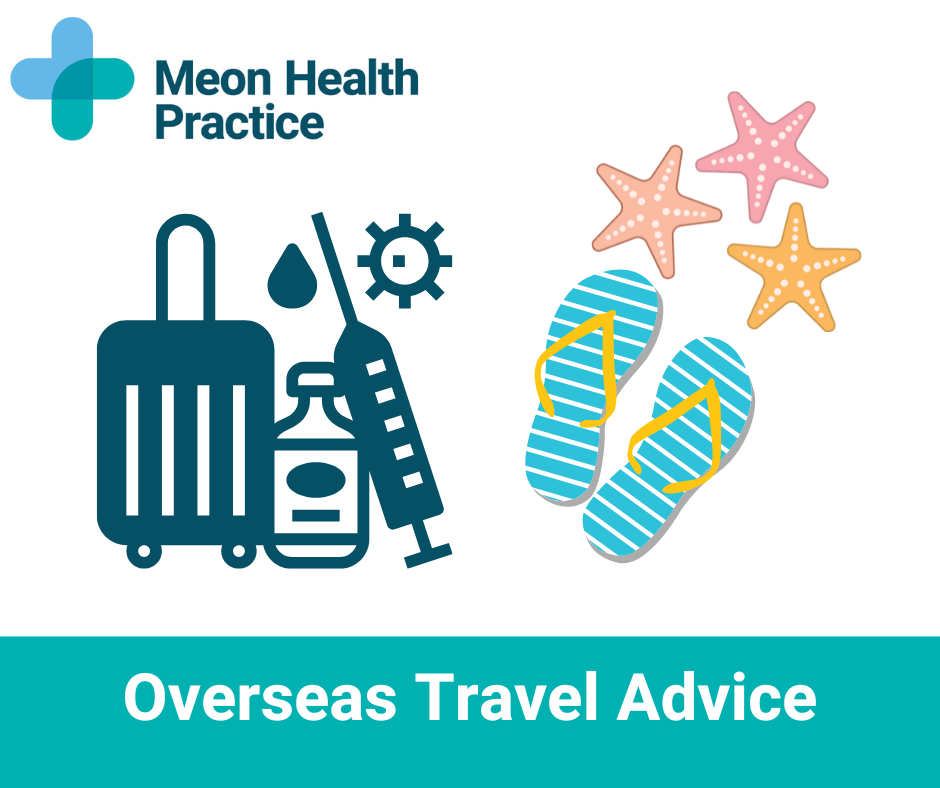Overseas Travel Advice
Ideally patients should start thinking about travel health consultations well ahead of their trip departure date – ideally 6 to 8 weeks before travelling.

The following NHS travel vaccines are available for free:
- Hepatitis A
- Typhoid
- Cholera
- Tetanus, Diphtheria and Polio (combined booster)
Other vaccines require private clinics
Not all vaccines are NHS-funded. Vaccinations such as Yellow Fever, Rabies, Japanese Encephalitis, and Hepatitis B must be arranged through private clinics, often at significant cost.
Malaria prevention: no vaccine, but critical
Though no vaccine exists for malaria, it remains a serious threat in parts of Africa, Asia, and South America. The NHS stress the importance of anti-malarial medication, insect bite prevention, and knowing local risks.
Common options include Malarone, Doxycycline, and Mefloquine, with specific recommendations depending on travel location and patient history.
Tailored advice for vulnerable travellers
Specialist advice is particularly vital for:
- Pregnant women (some vaccines are unsafe during pregnancy)
- Children and infants
- Older adults and people with chronic illness
- Immunocompromised travellers
Each group may face different risks and limitations on vaccine options, requiring careful planning.
More details
Consult trusted NHS-backed resources like:
Both offer up-to-date country-specific advice on required vaccines, outbreaks, and health precautions.
Final word: prevention is better than cure
With diseases like dengue, yellow fever, and typhoid still posing risks in many parts of the world, prevention is key
